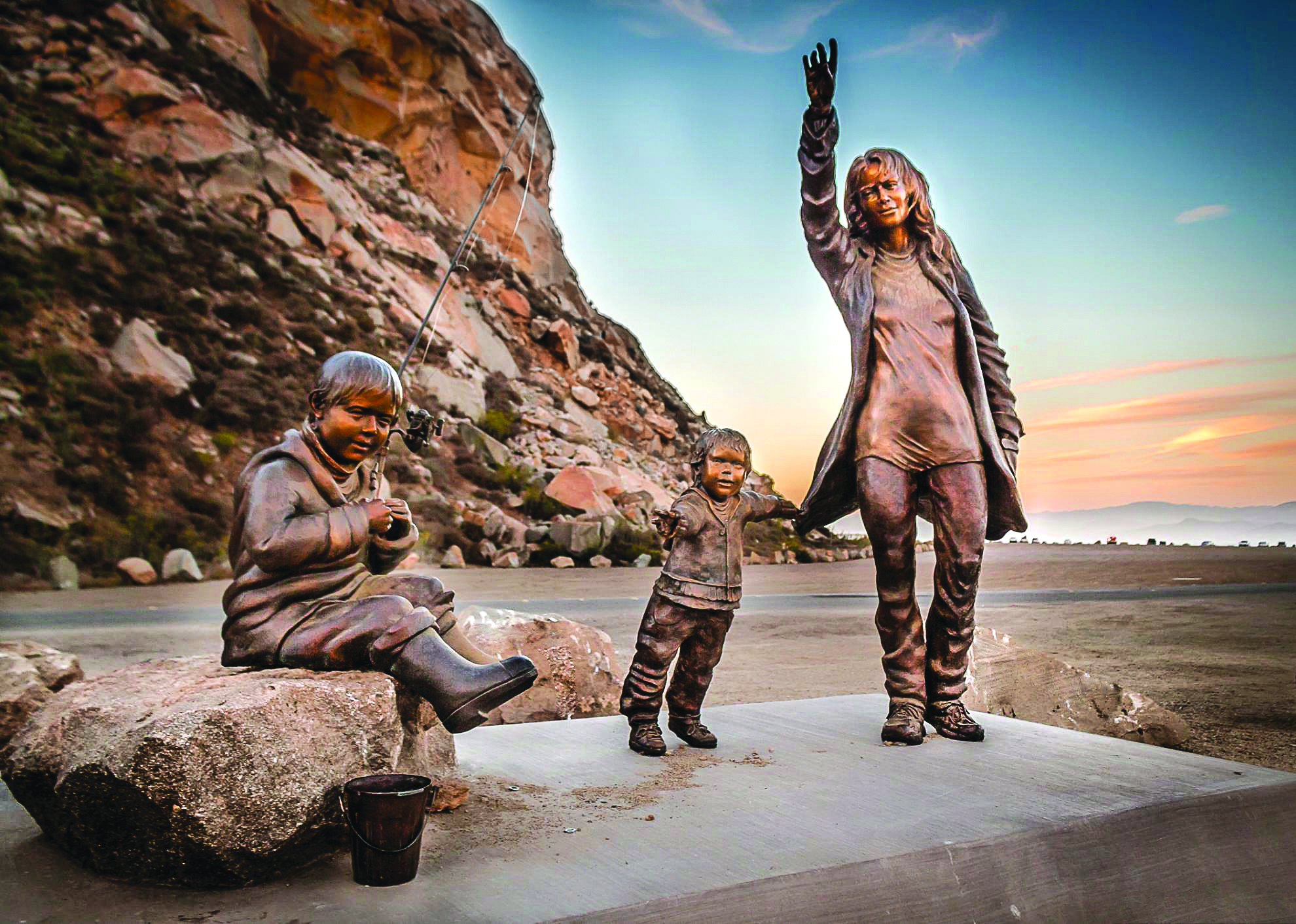[Editor's note: This story was originally published in the February 2010 issue of National Fisherman.]
One single silent tear rolls down her cheek; there will be so many more to follow. She has had the phone call, the “you need to come down to the harbor,” the call that every fisherman’s wife dreads. She has kept it locked in the deepest part of her heart for fear if it ever comes out she will crumble and her life will be shattered forever. She is we.
Now her family is gathered around the Coast Guard bell silently waiting and waiting. Silently word has gone out and more gather quietly. There is nothing anyone can do, just be there to let her know that she is we. This cannot be true, please God hear our prayers, let this just be a case of bad information. She knows it is true. We know it is true. He is not coming home.
We are a sisterhood; we keep this fear from our husbands. We don’t talk to them about this; it is just too real. This fear is always there, silently looming. The fishermen will never understand. They fish. Fishermen, that’s what they are. This is their life; it’s not a job. They, too, have their fears. They have run every scenario in their heads, planned their reactions. They have all the safety gear on their boats. They have practiced for every emergency. They know the risks. The Coast Guard sends out an annual letter to remind them that commercial fishing is the most deadly job. That letter has just arrived and sits on our kitchen table.
This is our life. It happens in every fishing family, somewhere, sometime. When it happens to one of our own, our old wounds are ripped apart. The searing agony, the raw grief, the unfathomable pain is fresh. It doesn’t matter if it happened last month, last year, 20 or 30 years ago, the pain is fresh. Fishermen, who are survivors, crumble. These men who are so strong, they go out because they are fishermen, they weep. One look says a million words.
The media becomes fascinated with our lives and our pain. The facts get mixed up. Complete strangers make hurtful, mean comments. They know nothing of our lives. We try to set the record straight, get the real facts out. We will fight to protect our sister. This story has happened in every port since man began to search the ocean for food. It will happen again and again until the regulations close the oceans. Ours is not a new story, but it’s our story — the life of a fishing family.
We are angry; new laws have made major economic shifts in our lives. Under the guise of protecting the ocean, safe anchorages are closed — those areas that fishermen use for refuge, gone, closed off. What will this mean to our husbands in the coming seasons? We will lose more because they cannot take refuge. We will lose more as fishermen struggle even harder to work with all these new regulations and closures. They are fishermen; it’s who they are. They will make it work.
Now we gather around our sister, trying to cocoon her from as much of the pain as we can. She is we. She is living our worst nightmare, our pain. Phone calls come from other fishermen’s wives. E-mails from other ports pour in. One sister sits in her garden weeping, another cries silently as she cooks dinner. We are all reaching out to each other. She is we. Hugs come from our women friends; they know we are crying for our sister. They know that she is we. It doesn’t matter if she is from a different port. We may not know her husband, we may not know her, but she is our sister — she is a fisherman’s wife. The one he chose above all others because he knew she would weather this. He knew she was strong. He knew others would gather around to protect her, to help her, and to love her when he is no longer able to. She is we. We are fishermen’s wives. Her single tear is ours.
From my heart to all my sisters — in memory of all our fishermen.







